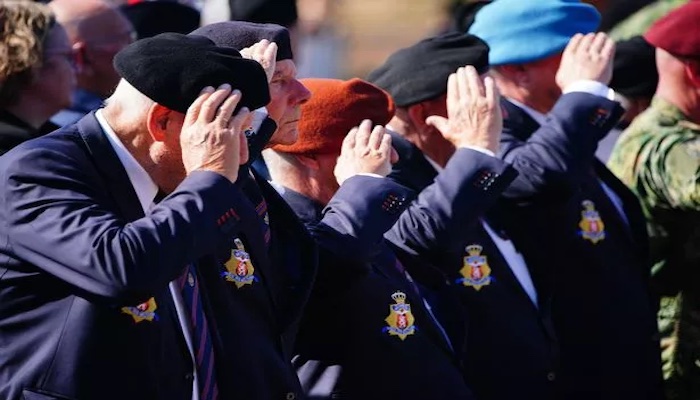
Germany excludes its ambassadors from Russia and Belarus from the WWII anniversary event in light of the war tensions in Ukraine
German concerns about Russia’s ongoing war in Ukraine lead to the exclusion of Russian and Belarusian ambassadors from the WWII anniversary ceremony.
The German parliament has decided against inviting the ambassadors of Russia and Belarus to a special session on May 8, which is the 80th anniversary of the conclusion of World War Two in Europe. This decision reflects rising concerns over how to honor Russia’s involvement in the war while it continues to wage war in Ukraine.
A Bundestag spokesman said Thursday that the decision was based on an evaluation by the federal government that concluded some foreign officials would not be allowed to attend the memorial service. The statement said, “This assessment resulted in the ambassadors of Belarus and the Russian Federation, among others, not being invited.”
Reflecting on the demise of Nazi Germany and the liberation of Europe from its ruthless rule, the ceremony will take place in the plenary chamber of the Bundestag. Although international politicians and diplomats would be there, the Bundestag made it clear that no foreign visitors other than authorized embassies were formally invited.
A long-standing aspect of Russia’s national identity has been its historical contribution to the defeat of Nazi Germany. Western countries’ attitudes toward such remembrances have been strained, meanwhile, by President Vladimir Putin’s frequent use of World War Two narratives to defend Russia’s full-scale invasion of Ukraine.
Russian Ambassador Sergey Nechayev attended a separate ceremony on Wednesday to commemorate the 80th anniversary of the Battle of the Seelow Heights in Seelow, eastern Germany, despite the rebuff. The combat claimed the lives of almost 30,000 Soviet soldiers and was one of the last and bloodiest clashes before the Soviet army’s 1945 march into Berlin.
For political reasons, the German government has previously cautioned against attempts to “instrumentalise” historical events, especially in view of Moscow’s continuous military aggression.
In response to the Bundestag’s action, Maria Zakharova, a spokesperson for the Russian Foreign Ministry, charged Germany with disrespecting the history of the conflict. The omission of Belarusian and Russian envoys, she said in an interview with Russia’s RIA news agency, was a “insult to the direct descendants of Hitler’s executioners.”
Germany’s symbolic action highlights the delicate diplomatic balancing act between admitting the past and facing the present as the conflict in Ukraine continues to alter international alliances and historical narratives.
All Categories
Recent Posts
Tags
+13162306000
zoneyetu@yahoo.com



